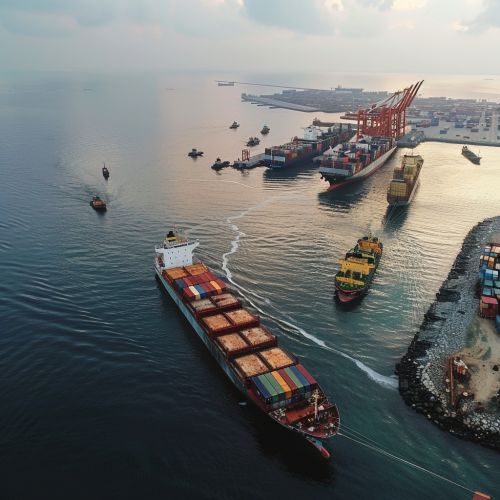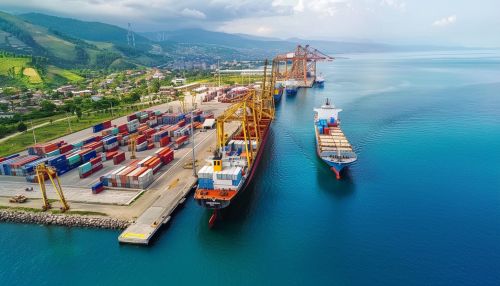Bugia
Introduction
Bugia, also known as Bougie, is a term with multiple historical and cultural significances. Primarily, it refers to a city in Algeria, known for its rich history and strategic importance. Additionally, the term has been used in various contexts, including maritime navigation and the candle industry. This article delves into the multifaceted nature of Bugia, exploring its historical, cultural, and economic aspects.
Historical Background
Ancient and Medieval Periods
Bugia, located on the Mediterranean coast of Algeria, has a history that dates back to antiquity. Originally known as Saldae during the Roman Empire, it was an important hub for trade and military operations. The city's strategic location made it a focal point for various empires, including the Byzantine Empire and later the Islamic Caliphates.
During the medieval period, Bugia became a significant center of learning and commerce under the rule of the Almoravids and Almohads. The city was renowned for its scholars and was a major exporter of wax, which was used to make candles. This is where the term "Bougie" (French for candle) originates.
Ottoman Era
In the 16th century, Bugia fell under the control of the Ottoman Empire. The Ottomans fortified the city, making it a crucial military outpost. The city's port continued to thrive, facilitating trade between Europe, Africa, and the Middle East. The Ottoman influence is still evident in the city's architecture and cultural practices.
French Colonization
Bugia was colonized by the French in the 19th century, becoming part of French Algeria. The French modernized the city's infrastructure, building roads, schools, and hospitals. However, the colonization also led to significant social and economic changes, impacting the local population.
Economic Significance
Maritime Trade
Bugia's port has been a vital part of its economy for centuries. The city's location on the Mediterranean Sea makes it an ideal point for maritime trade. Historically, Bugia exported goods such as wax, olive oil, and textiles. Today, the port continues to be a hub for the export of petroleum products, agricultural goods, and manufactured items.


Industrial Development
In recent decades, Bugia has seen significant industrial development. The city is home to various industries, including petrochemicals, manufacturing, and food processing. The presence of natural resources, such as oil and gas, has attracted both domestic and international investments.
Tourism
Bugia's rich history and scenic beauty make it a popular tourist destination. The city boasts several historical landmarks, including ancient ruins, Ottoman-era buildings, and French colonial architecture. Additionally, the Mediterranean coastline offers beautiful beaches and recreational activities, attracting tourists from around the world.
Cultural Heritage
Language and Literature
The linguistic landscape of Bugia is diverse, with Arabic being the predominant language. However, French and Berber languages are also widely spoken. The city has a rich literary tradition, with contributions from various scholars and poets throughout history. Bugia was once a center for the translation of scientific and philosophical texts during the Islamic Golden Age.
Music and Arts
Bugia has a vibrant cultural scene, with music and arts playing a significant role. Traditional Algerian music, including Raï and Chaabi, is popular in the city. Additionally, Bugia hosts several cultural festivals and events, showcasing local and international talent.
Cuisine
The cuisine of Bugia reflects its diverse cultural influences. Traditional Algerian dishes, such as couscous, tagine, and brik, are commonly enjoyed. The city's coastal location also means that seafood is a staple in the local diet. French and Mediterranean culinary influences are also evident in Bugia's food culture.
Modern-Day Bugia
Demographics
Bugia is a melting pot of cultures and ethnicities. The city's population is a mix of Arabs, Berbers, and people of European descent. This diversity is reflected in the city's cultural practices, languages, and traditions.
Education and Research
Bugia is home to several educational institutions, including universities and research centers. These institutions play a crucial role in the city's development, fostering innovation and providing education to the local population. The University of Bugia is a prominent institution, offering a wide range of academic programs.
Infrastructure and Development
In recent years, Bugia has seen significant infrastructure development. The city has modern transportation systems, including roads, railways, and an airport. Additionally, there have been efforts to improve public services, such as healthcare and sanitation, to enhance the quality of life for residents.
